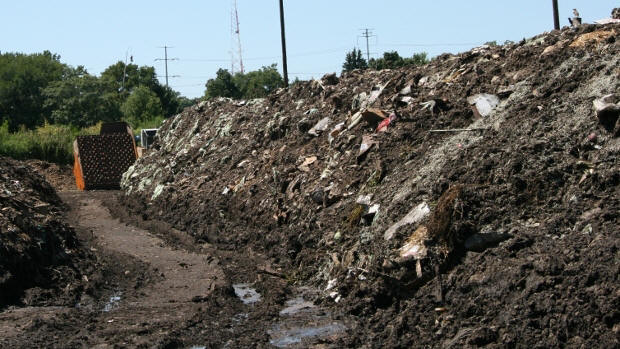Food for thought: How much composting occurs in U.S.?
- November 20, 2012
- By Shawn Wright
 File: Shawn Wright, Waste & Recycling News
The U.S. Composting Council is
implementing the first phase of a research study to identify, as
much as possible, every compost facility in the U.S. such as
permitted public and commercial operations.
File: Shawn Wright, Waste & Recycling News
The U.S. Composting Council is
implementing the first phase of a research study to identify, as
much as possible, every compost facility in the U.S. such as
permitted public and commercial operations. In the U.S., there are detailed numbers on existing landfills, material recovery facilities and waste-to-energy plants.
But when it comes to organics recycling and composting operations, there's just no clear answer.
"It's kind of crazy that no one – even we, who should – knows how many compost facilities there are, how much compost is produced," said Cary Oshins, director of education and outreach at the U.S. Composting Council (USCC). "We have estimates, but they are really ballpark estimates. Hopefully, we'll get there."
The USCC is making strides to reach that destination after implementing the first phase of a research study to identify, as much as possible, every compost facility in the U.S. such as permitted public and commercial operations.
The ballpark figure of existing U.S. composting operations is about 4,000. The USCC's preliminary research is estimating between 3,500 and 4,500 facilities.
"You, obviously, have to decide what constitutes a facility," Oshins said. "In other words, do you have to have every homeowner [who composts]? There's some gray area there."
The organization expects Phase 1 research of U.S. facilities to be completed this fall and to have a full list early next year. The research is going slowly, Oshins said. An initial formal study was pulled due to costs, high response rate and too many uncertain results to go forward.
"If this was an easy project, it would've been done long ago by someone else," said Michael Virga, executive director of the USCC. "We're tackling this and pulling information from a lot of different groups, some published lists and information that is available from other websites that we've drawn in. We're also working with the state regulatory agencies, where we can."
One problem has been that state regulatory agencies either don't have the information or they won't give it out, Virga said.
Currently, there are some avenues to find composters, such as findacomposter.com, a searchable database of composting facilities in the U.S. and Canada.
"We want to draw on their lists and put something together that, in the end, is going to be more detailed, thorough and accurate," Virga said. "It's going to be a very good document and a very good list. This is something that's going to take some time."
The list will be what Virga called a "fluid document," due to increased industry activity such as construction of new facilities and older ones being taken out of service. The list will not be made public. It is being discussed how the information will be used in the future, Virga said.
The second phase of the research will consist of further review of the collected data and an internal review of the information.
"We can't utilize the list until it's in a state where we're all very comfortable with the accuracy of the data and what we have, in terms of information," Virga said. "It has to be good, it has to be airtight and vetted by those who know the game and what to look for."
One of the goals is to build an economic picture of the compost industry because "it is clearly growing, when you look at the variety of indicators, but the hard data just isn't there," Oshins said.
"With that information," he said, "we'll figure out how to go on to the next stage – how much material is being recycled, how much compost is being produced, how many employees does that represent?"
That third phase hopes to answer the above questions, along with information regarding types of accepted feedstocks, different technologies used (anaerobic digesters, enclosed or open-air systems) and different economic data that goes past the basic contact information and location.
"We know it's not going to be a perfect list; it's never going to be a perfect list," Virga said. "Hopefully, it will be the best out there."
![]()
w w w . w a s t e r e c y c l i n g n e w s . c o m
copyright 2012 by Crain Communications Inc. All rights reserved.